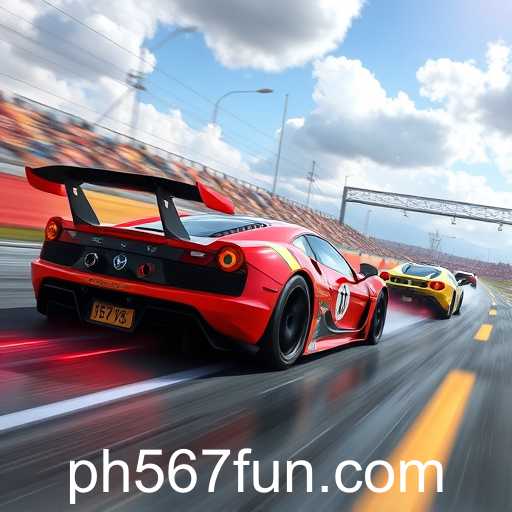Racing games have long been a staple in the gaming world, captivating players with their thrilling sense of speed and competitive spirit. From arcade classics to highly immersive simulators, this genre offers a unique adrenaline rush that both casual and hardcore gamers cannot resist.
One of the earliest and most iconic racing games was "Pole Position," released in 1982 by Namco. It set the foundation for the genre with its realistic track design and was among the first to feature a qualifying lap format that determined the starting position of the player. Fast forward to today, and racing games have evolved significantly, offering highly detailed graphics, intricate physics engines, and a variety of vehicles to choose from.
The appeal of racing games lies in their ability to provide an accessible yet challenging experience. With intuitive controls, players can quickly grasp the basics, while mastering advanced techniques such as drifting and cornering requires practice and skill. The thrill of overtaking opponents and relentless pursuit of the best lap times keeps players engaged, offering endless replayability.
Technological advancements have played a pivotal role in the evolution of racing games. The introduction of PlayStation and Xbox brought sophisticated hardware capabilities, enabling stunning graphics and more detailed environments. Games like "Gran Turismo" and "Forza Motorsport" have set the bar high by simulating real-world physics and offering a vast array of cars meticulously designed to mimic their real-life counterparts.
In recent years, there has been a rise in virtual reality and augmented reality in racing games. VR headsets provide an immersive experience, making players feel as if they are genuinely inside the car, while AR can add an extra layer of interaction by integrating real-world environments with the gaming experience.
Racing games have also made significant strides in the competitive gaming scene. Esports tournaments for titles like "iRacing" and "F1" have grown in popularity, drawing large audiences and offering substantial prize pools. These competitions bring together professional drivers and gaming enthusiasts alike, blurring the lines between real and virtual racing.
The social aspect of racing games cannot be overlooked. Multiplayer modes enable friends and strangers worldwide to compete, fostering a global racing community. Online leaderboards and challenges create a sense of continuity and global competition, encouraging players to constantly improve their skills.
In conclusion, racing games have come a long way since their inception, continually pushing the boundaries of what is possible in gaming. As technology continues to advance, the future for this genre looks even more promising, promising even greater levels of immersion and excitement for players around the world. Whether you are a casual player or a dedicated racing enthusiast, the world of racing games offers an unparalleled experience that continues to drive the gaming industry forward.








